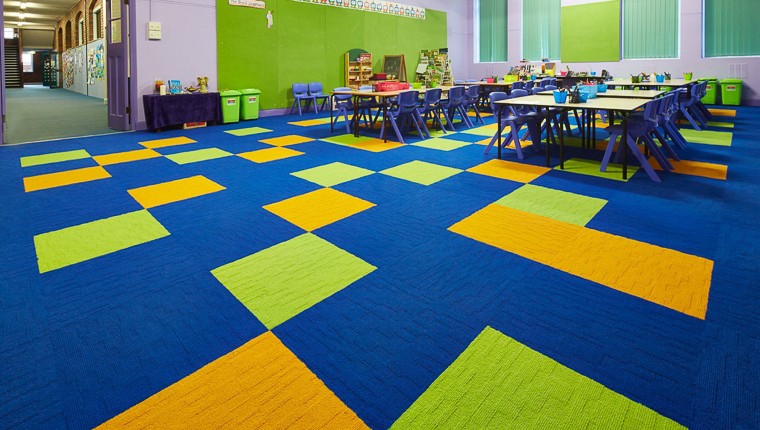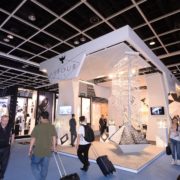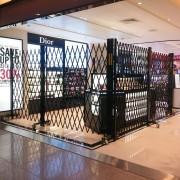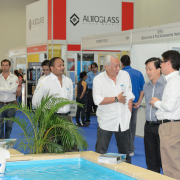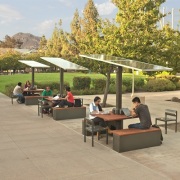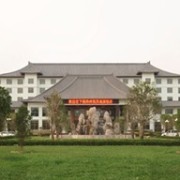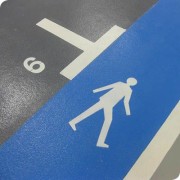Industrial-strength carpet made from recyclable items
AN industrial-strength carpet made of used fishing nets and plastic bottles which is also recyclable is attracting attention from architects keen “green building” products.
The carpet, manufactured by ec.group in South Australia, uses recycled fish netting in the pile fibre and recycled plastic bottles for the backing and is 100 per cent recyclable.
The carpet has attracted international attention and was last month awarded a Good Design Award from Good Design Australia.
According to ec.group general manager Chris Timberlake, the company’s Wilderness carpet line provides superior noise acoustic properties, impact absorption, is ultra-hard wearing, thermal efficient and breathable.
The boutique manufacturer, which has been operating in South Australia for 50 years, joined with a Thailand-based partner and manufacturer to develop the product in response to increased demand for products that help buildings achieve “green’’ status.
“This carpet is 100 per cent recyclable at the end of its life which is extremely attractive to architects and designers who wish to achieve high “green ratings’’ for their buildings,’’ said Timberlake.
Chief Executive Officer of the Green Building Council of Australia, Romilly Madew, said since the Green Star rating system was launched in 2003 it has rewarded clever re-use of materials – both in base buildings and in fit-outs.
“Not only do the rating tools encourage re-use of structure and façade, and using less to achieve the same outcomes, but they encourage project teams to think about what they are using, where those materials come from, and to consider innovation in every aspect of what they do,’’ Madew said.
“As a result, Green Star has driven designers and architects to think more strategically about how they can reuse materials to reduce the amount of construction waste going to landfill. Many of the examples of reuse are more functional than artistic however, there are a number of Green Star projects which have made ‘upcycled’ materials a feature of their designs.’’
The ec.group are currently selling the Wilderness product in North America and the United Kingdom.
“It is still quite a new product at the moment,’’ Timberlake said. “But the momentum has clearly started following successful trade expos in Chicago, Melbourne and Sydney last year. We expect to be launching a marketing campaign across the United States by the end of 2015.
“We are currently selling above our initial forecast and we expect to double that figure within 12 months.’’
“In Australia the carpet has already been laid in schools in New South Wales, high-end hotels in Adelaide and entertainment venues in Melbourne. The take up has been quite rapid and is Australia wide.’’
Executive Director of the Property Council for Australia (SA), Daniel Gannon said increased use of eco-friendly, sustainable building materials provided a “win win’’ scenario within the building industry.
“From policy makers down to tenants of commercial buildings there are great advantages for using recycled and sustainable products in construction and redevelopment,’’ he said.
“Whether it is good corporate citizenry or creating genuine sustainability there is a much higher awareness of the benefits of eco-friendly products in the commercial sector than there was 20 years ago.
“Those in the market are looking for a higher level of sophistication in design which can also improve valuation.”


